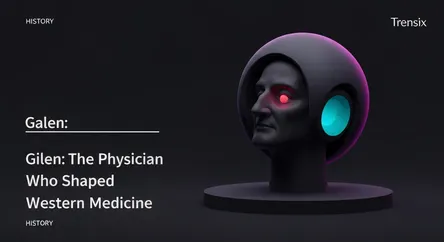History
Galen: The Physician Who Shaped Western Medicine

Discover Galen, the Greek physician in the Roman Empire whose ideas on anatomy and physiology dominated Western medical thought for over 1,300 years.
What is it?
Galen of Pergamon (129 – c. 216 CE) was a Greek physician, surgeon, and philosopher in the Roman Empire. Considered one of the most accomplished medical researchers of antiquity, he served as a physician to gladiators and several Roman emperors, including Marcus Aurelius. A prolific writer, Galen synthesized existing medical knowledge and added his own extensive observations from dissections and experiments, primarily on animals. He greatly expanded on the Hippocratic theory of the four humors—blood, phlegm, yellow bile, and black bile—believing their balance was essential for health.
Why is it trending?
Galen's work is historically significant due to its immense and long-lasting influence. His writings became the absolute authority on medicine in Europe and the Middle East for over 1,300 years, dominating Western medical science well into the Renaissance. His monotheistic belief in a single divine creator made his work acceptable to the Christian Church, which helped preserve and enforce his teachings as dogma throughout the Middle Ages. Medical education was based entirely on his texts, making his influence inescapable for centuries until his anatomical errors were challenged by Renaissance figures like Andreas Vesalius.
How does it affect people?
Galen’s legacy is complex; he laid a crucial foundation for modern medicine while also impeding its progress. He pioneered the use of experimentation in medicine and correctly identified that arteries carry blood, not air, and that the larynx produces the voice. However, because his anatomical knowledge was based on animals like apes and pigs, it contained significant errors when applied to humans. The unquestioning acceptance of his theories, like bloodletting to balance humors, had a direct and often negative impact on people's health for centuries. His story demonstrates how foundational knowledge is built and highlights the importance of continually questioning authority in science.